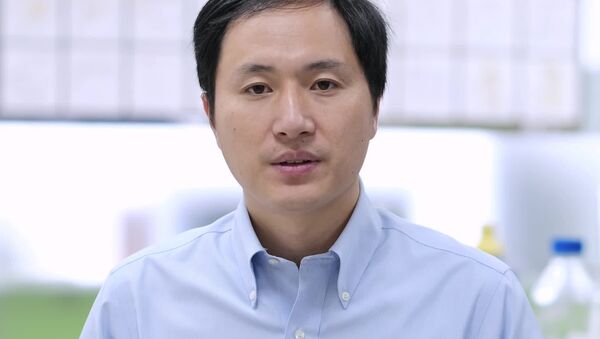He Jiankui, the Chinese scientist who has created the world’s “first genetically-edited babies”, has been sentenced to three years in prison, China's state-run Xinhua news agency reports.
A court in Shenzhen, south China, found the 35-year-old guilty of illegally gene-editing human embryos intended for reproduction. He also received a hefty fine of 3 million yuan (about $430,000).
Two other colleagues of Jiankui received a two-year and an 18-month prison sentence, as well as fines of 1 million yuan and 500,000 yuan.
“The three accused did not have the proper certification to practice medicine, and in seeking fame and wealth, deliberately violated national regulations in scientific research and medical treatment,” the court said, as quoted by Xinhua.
The ruling stated that the scientists have “crossed the bottom line of ethics in scientific research and medical ethics”.
Jiankui, who studied at Rice and Stanford universities in the US before returning to China, claimed last fall that he had succeeded in editing the genes of twin girls, known as Lulu and Nana, using the revolutionary technique CRISPR-Cas9.
The scientist said his goal was to render them immune to HIV by altering CCR5, the gene that encodes the protection of the same name used by the virus to infect cells in the immune system.
The news generated a widespread backlash in China and elsewhere, fuelling the public debate regarding the ethics of genetic modification.
Jiankui has never officially published his findings, although MIT reported this month that it had obtained a copy of an unpublished transcript that contains little evidence to support He’s claim that the experiment was a success.
Fyodor Urnov, a genome-editing scientist at UC Berkeley, told MIT Technology Review: “The claim they have reproduced the prevalent CCR5 variant is a blatant misrepresentation of the actual data and can only be described by one term: a deliberate falsehood.”

